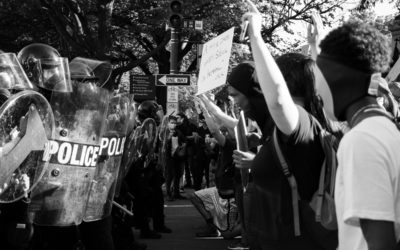We. Such a simple word, and yet it can be slippery and difficult. It can be used to include or exclude, to harm or to heal. The English language is ambiguous on whether the listener has belonging within the spoken ‘we’.
In my last blog post, I wrote of the people of the United States as ‘we’:
We are increasingly divided. We are becoming more sectarian. We dismiss people and are less willing to compromise… How do we reclaim our humanity?
I was thinking of ‘we’ as those with the power to include or exclude. ‘We’ meaning those with power to shape social contracts – both formal (laws) and informal (culture). ‘We’ including media personalities and influencers – those with an audience who are actively using their voice.
As I reflect on who belongs in ‘we’, politicians and those with a public platform are the first that come to mind. I would like them to shape up and act maturely and for the benefit of the most vulnerable. After all, they are the ones with the power to change things, not us.
This is the fallacy. Despite appearances, power belongs to us all. We each have power to include or exclude. We can influence laws and culture. We can call our representatives; we can spread kindness in our community. We each have an audience, however big or small.
The feel of a place – whether it is welcoming or cold, exciting or calming – is formed by the people who inhabit it. The current feel of the U.S. has been formed by we who inhabit it. We have contributed to our own divisions. We including anyone who participates in us vs. them thinking. We including anyone whose plan for improvement focuses on Them changing Their behavior. We who take in and support divisive rhetoric. We who approve of dehumanizing jokes and banter and vitriol. We who are uncomfortable and remain silent.
We also includes anyone who claims America as home who interrupts the divisive narrative to question its merits. We are a people who challenge dehumanizing language. We are a people who take responsibility for our own part of a problem. We are a people focused on solutions, cooperation, and the benefit of all.
I know I act within both camps of ‘We’. Sometimes, my language and behavior contributes to division. Other times, what I say or do aids in the repair of division. This is good news. In the metaphor of the fabric of our country, as I work to mend my little corner, the whole piece benefits. Am I using my power to include or exclude, to harm or to heal?





0 Comments